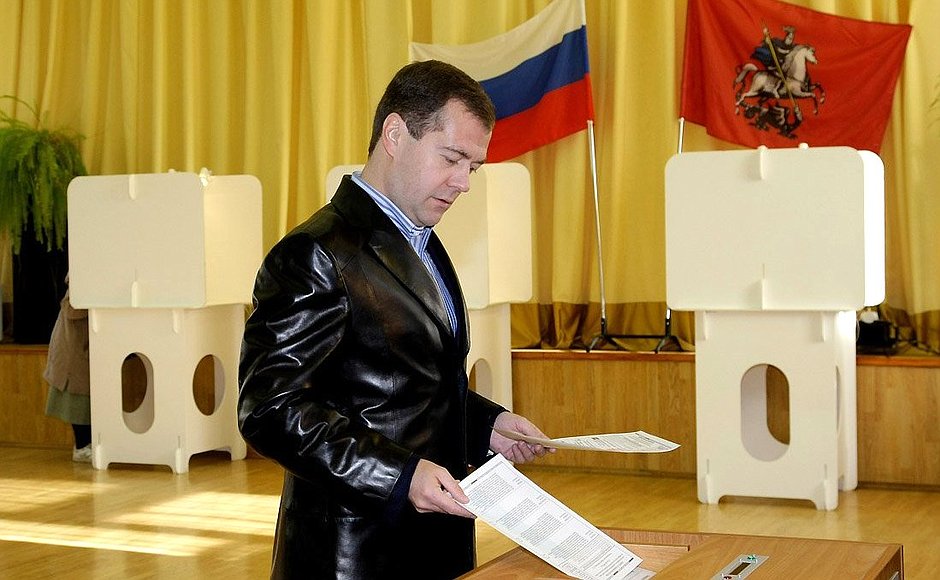Duma election in Russia. Freer this time?
In a month, the Russian parliament will be elected through a new mixed electoral system. The last three State Duma assemblies can hardly be characterised as democratic, and it remains to be seen if this election will bring any changes.
September 2, 2016 -
Anastasiia Sergeeva
-
Articles and Commentary

Liberal parties have been underrepresented in the Russian parliament since 2003 (the fourth assembly of the State Duma). In addition, numerous single-mandate deputies who entered the election with a liberal agenda during the campaign gradually moved to conservatism and ultra-conservatism in order to be reelected. Some of them are now seen as the authors of the most scandalous bills.
Since 2007, the election to the State Duma was closed to independent deputies and regional and local leaders. The parliament was elected through a proportional system, instead of a mixed one, with the most unfavorable mandate distribution affecting small parties and leaders.
Boris Gryzlov, the speaker of the Duma, stated that “Duma is not a place for discussions” which tellingly summarises the official approach to politics. Impersonality and inanity were the main features of the parliament. The election law reforms and the fact that only four registered parties have been represented in parliament has led to the rapid decrease of the number and diversity of political forces. Consequently, the 2011 election has been seen as largely illegitimate.
The mass protests that followed brought a temporary liberalisation of the law during the presidential election campaign and a rapid crackdown after Vladimir Putin began his third term in office. The Kremlin learned its lesson: the parliament should be active and the law should not limit political parties so strictly.
Therefore, the last – fifth assembly of the State Duma was defiantly provocative and deputies tried their best to make an impression. They proposed disreputable and inappropriate bills, which were partly adopted as well as widely discussed in mass media and social networks. It was a very convenient strategy for all sides in the situation in which real political discourse was derailed. Deputies proposed their outlandish ideas and journalists were happy to discuss them given it increased ratings without the danger that anyone would take them seriously. Voters clutched their heads and continued reading.
As a result, political discourse has been substituted by black humor, irony and useless discussions about peripheral issues. The real issues were addressed using “administrative instruments” without any semblance of public discussion, while serious problems were not solved at all.
The results are interesting. According to recent surveys, Russian voters did not remember the names even of the most active and ill-reputed deputies, but thought as well that the Duma itself is mad and harmful and its decisions have a detrimental effect on people’s lives. Survey respondents scold the Government as an initiator of evil reforms that have caused the price increases, decrease of salaries, inflated costs of communal services and local transport tariffs. They also see that the reforms have resulted in worsening the quality of medical care within the obligatory medical insurance and school education, which is also becoming increasingly expensive. The most common accusation against the Duma is that the deputies do not do their job: they do not control the government and do not represent people’s interests.
As a result, the voters are looking for professionals and specialists who could defend ordinary people and understand their concerns. Although Russian voters are still not fully familiar with the new election system and may not remember the date of the election (especially that the authorities prefer a low turnout and do little in the way of promotion), they want to cast their votes for new deputies. Many of them think it might be possible to affect the country’s direction; others talk about civic duty. They would like to find a worthy candidate who would be happy to listen and respond to their problems and concerns. They want to see competitive elections, engaging campaigns, strong candidates and a true battle for votes.
Unfortunately, the current political landscape in Russia does not reflect such an image. Political parties are still weak, faceless or populist, many candidates focused on buying votes, “administrative resources” or just an informational campaign without direct communication with voters. However, the current campaign has been a little more vivid and free than the previous one and this is surely a step in the right direction. More political parties can compete in the proportional system and there is a number of independent candidates in single-mandate districts who have prepared outstanding campaigns. They are the true heroes of the election.
However, it is not a merit of Putin or his associates, but a result of Russian generational and value changes. Russia is not as Eurasian as some conservatives would like to think. It is also a result of civil society developing no matter how repressive and unconstitutional recent legislation has been. This is our hope for the future.
Anastasia Sergeeva is a board member of the association “For a Free Russia”. She emigrated from Russia after 212 due to the political situation. She previously worked as a political consultant and an activist of the Republican Party of Russia.

































